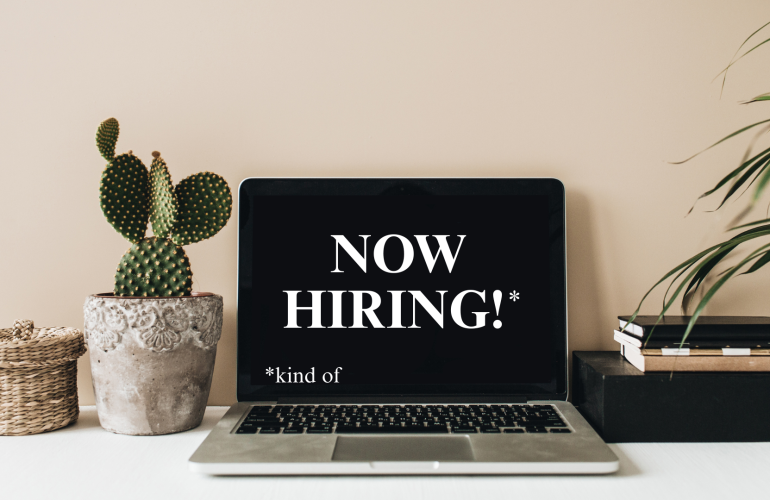By Leigh-Ann Athanasius

Recruitment as a process has always been highly contentious. No business can claim to have developed the universal, tried and true method to guarantee the right talent in their organisation, but not for the lack of trying. But as the pandemic raged on, recruiters all aligned and agreed that Zoom and Teams were the quintessential recruitment tools, at least until the world got back to normal. But as we continued to settle in our current landscape, recruitment didn’t immediately switch back to how it used to be once people could meet in-person again. Virtual interviewing is still predominantly used by almost all organisations, especially as an early pre-screening tool. But when things change, there will always be some who will ask the question about the ‘old way’ of doing things.
Why didn’t we go back to in-person?

Because virtual interviews are convenient.
For the employer/recruiter, virtual interviews give them access to talent that may have otherwise been difficult to get into an interview room. This doesn’t only apply to those ‘hard to get’ talent who would be apprehensive about interviewing due to work schedules/being worried that they would be ‘caught’ interviewing/time spent within the process.
Virtual interviews reduced the barriers to access and thus increased inclusivity across the interviewing process. There are a couple of ways that this happens.
First, it allows for people with disabilities to comfortably access the interview whether that be through features like closed-captions on the video, adjustable text sizes, and the ease of not having to figure out whether the interview location is accessible to those with mobility issues.
Second, the employer is able to interview candidates that may have anxiety issues such as agoraphobia or social anxiety since they can be in a familiar environment that could reduce stress compared to an in-person interview. This means that they’d give a better interview than if the only option was in-person.
Moreover, as remote work becomes more and more common, there may be the thought that there is no need to interview someone in-person who will never work on site.
So, are in-person interviews still valuable?
There are several benefits to virtual interviews, however, this is not to say that in-person interviews have no place in the new normal. There are always going to be cues that you would have picked up in-person that don’t quite come up online. Body language and facial expressions that give insight into one’s personality could be lost when interviewing virtually.

In-person interviews can also overall be a smoother process. It may be easier to build a rapport with a candidate while in-person since the conversation would not be affected by technical difficulties e.g., poor internet connection or laptop malfunctions (we have all been there) that could disrupt the flow of the interview or create a negative impression for both the interviewer and the candidate.
It helps that technology is continuously improving. What may have started off a bit rocky in terms of sound and video quality, is now second nature to almost everyone, with the necessary adjustments now being made by all parties to facilitate a smooth conversation. In fact, a candidate may be more surprised if an interview is in-person – especially in the earlier stages.
To be honest, in our experience, virtual interviews have been just as effective as in-person interviews. We can attest to this as all our HQ team members since 2020 have joined PPA having been hired exclusively through the use of virtual interviews. Our understanding of who we are and what we need has meant that we have been able to easily integrate new staff into the team.
As either the recruiter or the candidate, do you prefer virtual interviews or in-person interviews?



